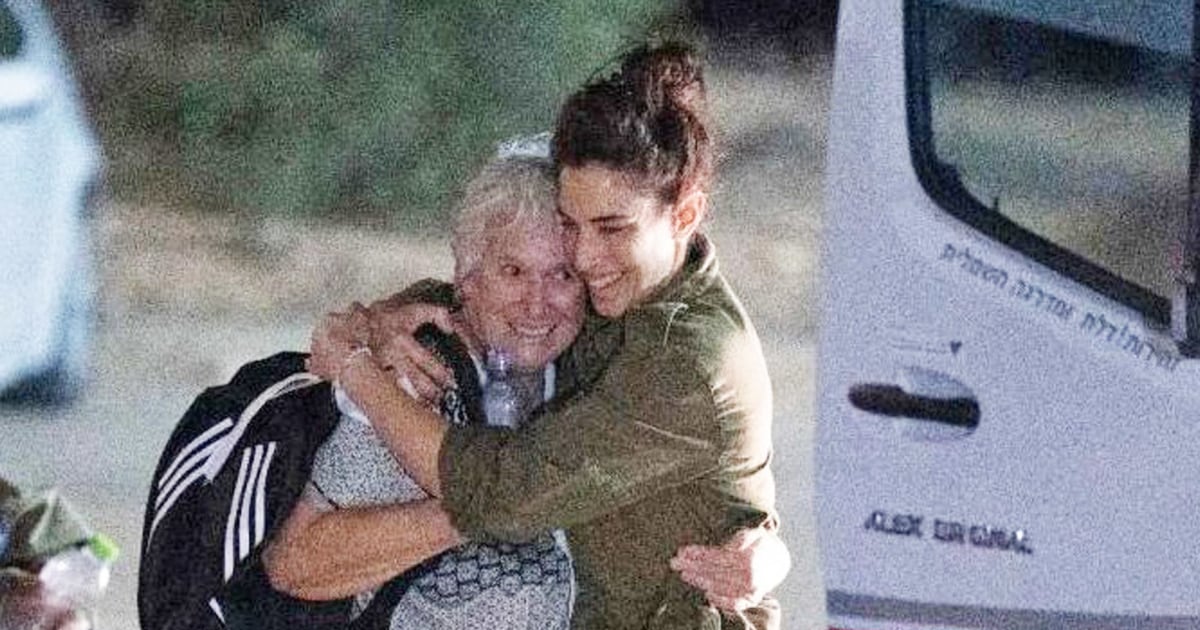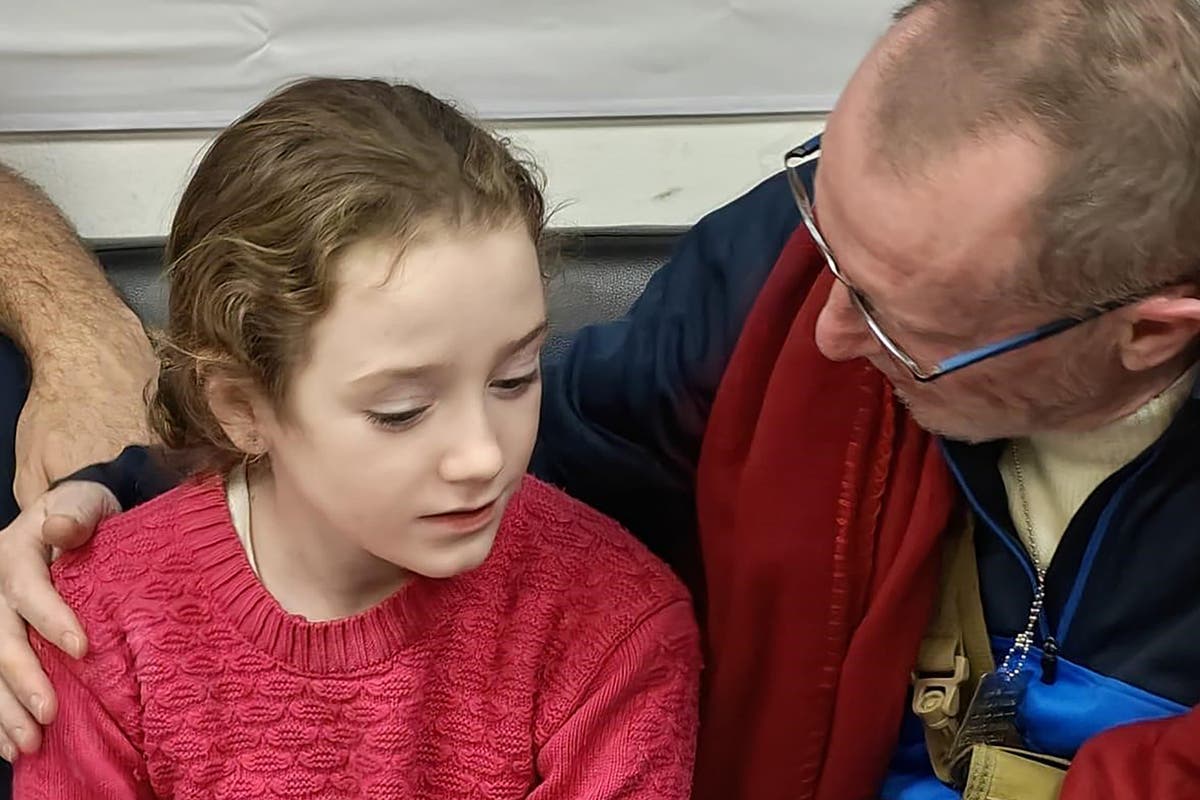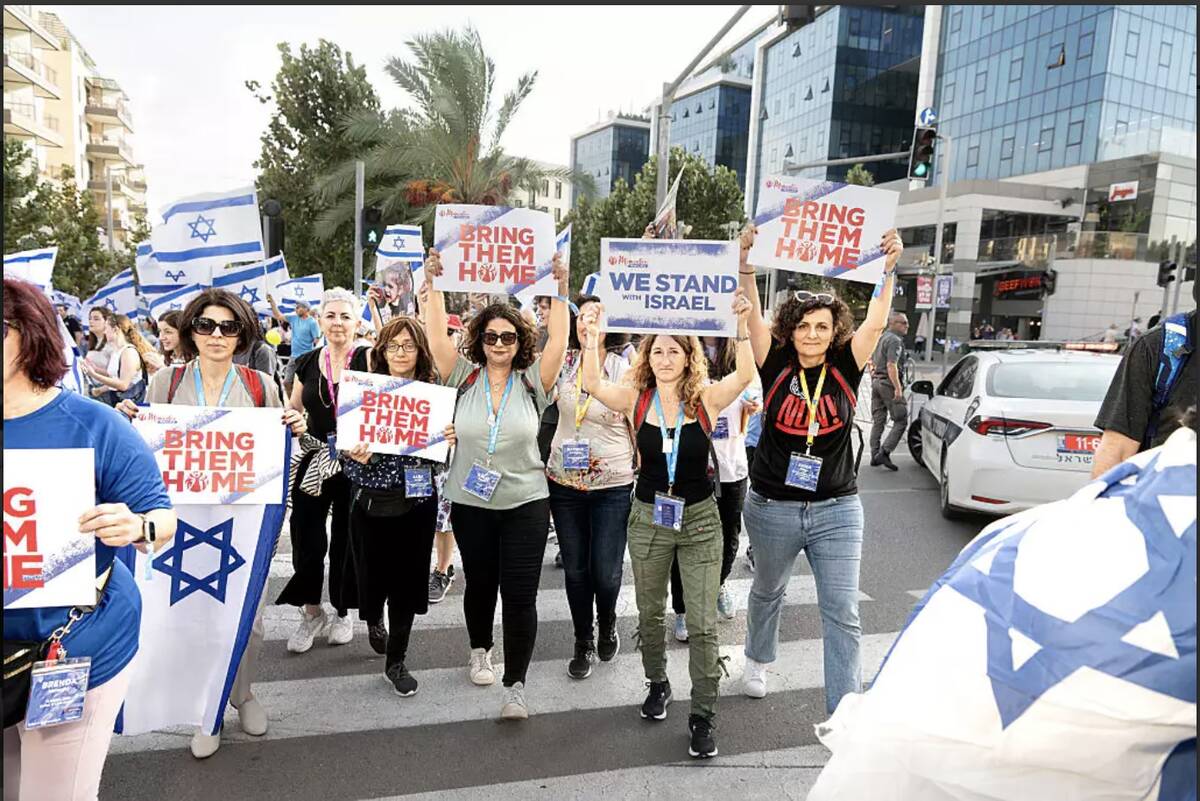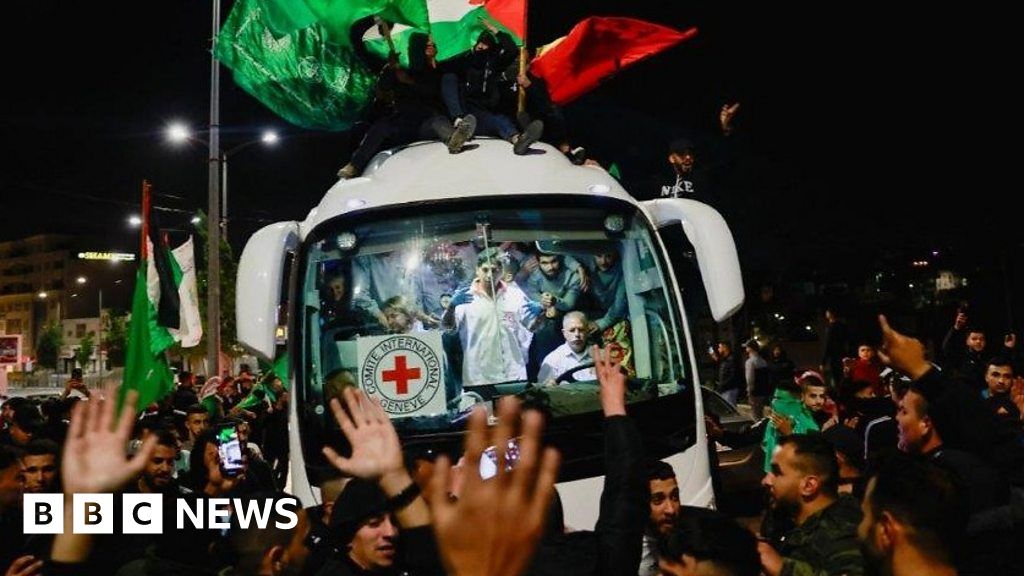Nbcnews
Hamas hostages torn by competing emotions upon return
J.Smith3 months ago
In one, Ohad Munder-Zichri , who had his ninth birthday as a hostage in Gaza, can be seen running into his father’s arms in a video posted to Facebook . In another, Doron Katz Asher and her young daughters Aviv, 2, and Raz, 4, can be seen in their first moments with father and husband Yoni Asher. He hugs the three tightly. “Now the dream is coming true, we’re home. We’ll be going to our home soon,” a smiling Yoni Asher says. “Are you happy?” he asks the solemn girls as he kisses his wife on the shoulder. Neil Greenberg, a psychiatrist and hostage expert, said it could be challenging for child hostages to become reacquainted. “The most important thing for the children is not just what’s happened to them, but it’s the way that they are received back and managed by the adults in their lives,” he said, adding that it’s important to “keep them stable and to give them that opportunity to express themselves and hopefully reassure them.” Returning to a different world Sharone Lifschitz, whose mother Yocheved Lifschitz, 85, was released in October , says the family’s recovery will likely be long and complicated. “My parents’ house, which they lived in for many, many years, is burned to the ground — there’s nothing left of it,” Sharone Lifschitz, whose father and Yocheved’s husband, Oded, is believed to be still held hostage, told NBC News in an interview. “She does not know if her husband is dead or alive.” Yocheved and Oded Lifschitz were lifelong peace activists and residents of Nir Oz, a kibbutz about a mile from Gaza that was overrun by Hamas militants who killed or abducted around a quarter of itsresidents. Many survivors of such communities near Gaza have not returned to their shattered homes six weeks after the Oct. 7 attack.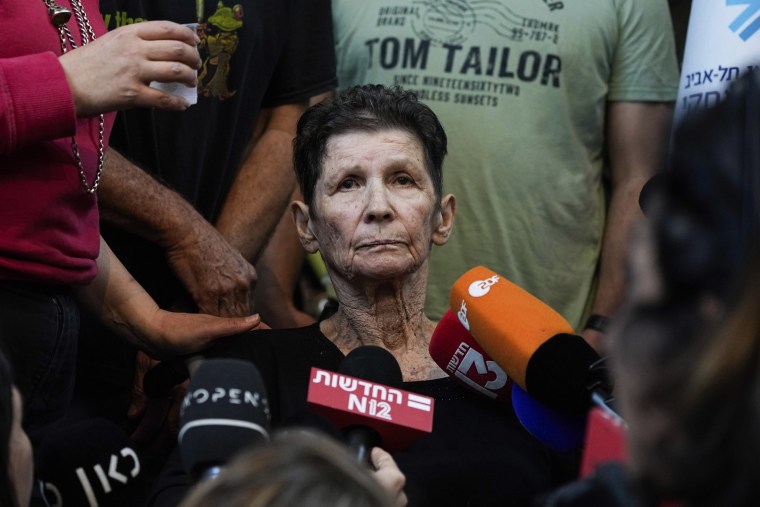 Yocheved Lifschitz speaks to members of the press at Ichilov Hospital in Tel Aviv on Oct. 24, a day after being released by Hamas militants. Ariel Schalit / AP file In video produced by Hamas of the moment she was released, Yocheved Lifschitz turned to one of the armed, balaclava-clad militants leading her and another hostage to freedom, and shook the person’s hand. She uttered one word: “shalom,” Hebrew for “peace.” She later reported being beaten while in captivity. Yocheved Lifschitz is experiencing a mix of feelings after the horrific experience of being held deep underground, isolated and in darkness, her daughter said. “The world she’s coming back to is very, very different,” Sharone Lifschitz said of her mother. Greenberg said mixed emotions should be expected from the freed prisoners. “What we know after captivity is that people go through a process where things are often very distressing and a bit confusing at first,” he said. “And then over time, if they have good support, then most people begin to sort of recover and get to some sort of steady state again. Often, we talk about them having gone through like a pendulum of experiences where, on one hand, they have this great euphoria that they’ve been released and they’ve been reunited with their friends and loved ones.” “But on the other hand, they’re also in this incredibly stressful environment where people are asking questions all the time,” he continued. “And they often are very much in the public limelight, at least for a period. And that can be quite distressing.” Greenberg said some people who are released may simply want to move on with their lives, while others “will find this to be one of the most frightening things ... that they’ve ever been through.” And then there are those loved ones who have been forced to wait without relief.
Yocheved Lifschitz speaks to members of the press at Ichilov Hospital in Tel Aviv on Oct. 24, a day after being released by Hamas militants. Ariel Schalit / AP file In video produced by Hamas of the moment she was released, Yocheved Lifschitz turned to one of the armed, balaclava-clad militants leading her and another hostage to freedom, and shook the person’s hand. She uttered one word: “shalom,” Hebrew for “peace.” She later reported being beaten while in captivity. Yocheved Lifschitz is experiencing a mix of feelings after the horrific experience of being held deep underground, isolated and in darkness, her daughter said. “The world she’s coming back to is very, very different,” Sharone Lifschitz said of her mother. Greenberg said mixed emotions should be expected from the freed prisoners. “What we know after captivity is that people go through a process where things are often very distressing and a bit confusing at first,” he said. “And then over time, if they have good support, then most people begin to sort of recover and get to some sort of steady state again. Often, we talk about them having gone through like a pendulum of experiences where, on one hand, they have this great euphoria that they’ve been released and they’ve been reunited with their friends and loved ones.” “But on the other hand, they’re also in this incredibly stressful environment where people are asking questions all the time,” he continued. “And they often are very much in the public limelight, at least for a period. And that can be quite distressing.” Greenberg said some people who are released may simply want to move on with their lives, while others “will find this to be one of the most frightening things ... that they’ve ever been through.” And then there are those loved ones who have been forced to wait without relief.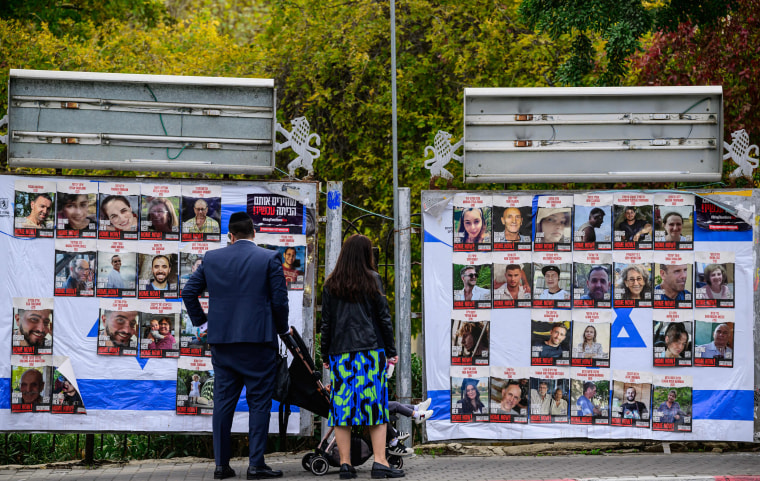 People look at billboards in Jerusalem with portraits of Israeli hostages held in Gaza since the Oct. 7 attack by Hamas militants. John MacDougal / AFP via Gil Dickmann, whose cousin Carmel Gat, 39, was taken by Hamas on Oct. 7, said the news that some hostages had been released was welcome. “The fact that a deal could be made between Israel and Hamas is amazing,” Dickmann told NBC News, adding that seeing his friends get their relatives back “fills you with happiness and hope.” But he added that he was trying not to get his hopes up too much since his cousin is a man and “the hostages that are supposed to be released are mainly children and their mothers,” he said.
People look at billboards in Jerusalem with portraits of Israeli hostages held in Gaza since the Oct. 7 attack by Hamas militants. John MacDougal / AFP via Gil Dickmann, whose cousin Carmel Gat, 39, was taken by Hamas on Oct. 7, said the news that some hostages had been released was welcome. “The fact that a deal could be made between Israel and Hamas is amazing,” Dickmann told NBC News, adding that seeing his friends get their relatives back “fills you with happiness and hope.” But he added that he was trying not to get his hopes up too much since his cousin is a man and “the hostages that are supposed to be released are mainly children and their mothers,” he said.


Read the full article:https://www.nbcnews.com/news/world/hamas-hostages-torn-competing-emotions-return-rcna126639
0 Comments
0
